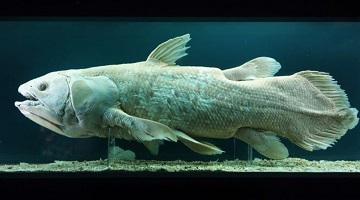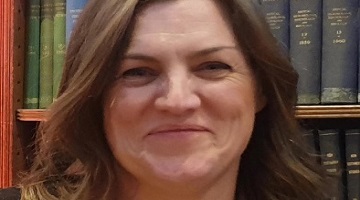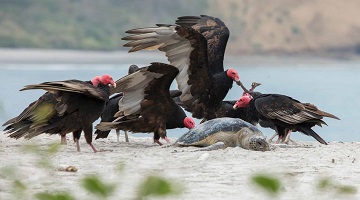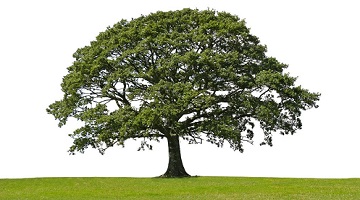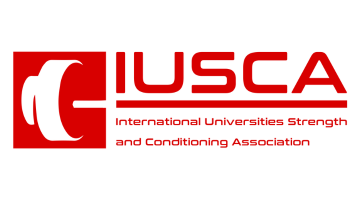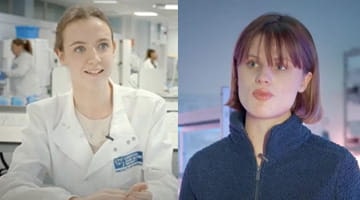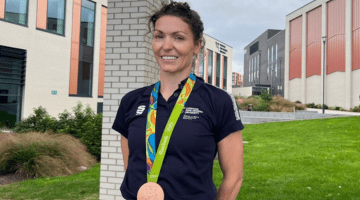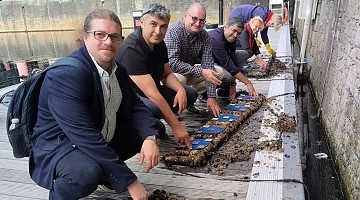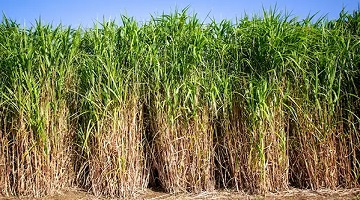Why study this course with LJMU?
- The School of Sport and Exercise Sciences is ranked 6th for Sports Science (QS World University Rankings 2024)
- Taught in a 25 million state-of-the-art building with world-class laboratories and equipment
- Excellent employment prospects in elite performance or promotion of healthy lifestyles
- Option to undertake work placement of up to 12 months
- Options to study abroad for part of the degree with support from schemes such as the Go Global Fund and Erasmus+
- This degree is available to study following a foundation year
- International Foundation Year course available offering direct progression onto this degree programme - visit LJMU's International Study Centre to find out more
About your course
The BSc (Hons) Sport and Exercise Science degree is delivered by world-leading experts in state-of-the-art facilities in our award-winning Tom Reilly Building.
Sports scientists work in the sports industries with athletes, coaches and governing bodies to help improve elite performance or in communities promoting healthy lifestyles. Through the multi-disciplinary study of the behavioural, physical and life sciences, this degree prepares you for a highly rewarding career in sports or exercise contexts - including scientific support, rehabilitation, exercise training and health promotion.
The foundations and principles underpinning sport and exercise science are covered in the first two years. This provides the multi-disciplinary grounding recommended by the British Association of Sport and Exercise Sciences (BASES). In the final year there is discipline specialisation and an independent research project led by the student.
Thanks to strong links with industry partners, we have a clear understanding of the needs and expectations of employers and are able to design the course with your future employability in mind. Formal work-related learning opportunities are provided in the final year where students will apply the skills and theory they have learnt through an applied placement module.
Many of our graduates continue onto postgraduate study to allow them to compete for the top sport and exercise science jobs in the country. The School of Sport and Exercise Sciences at LJMU is one of the best places in the country to study sport and exercise science. It pioneered the first degree of its kind in 1975 and is now formally recognised as a centre for world-leading research in the field.
Course modules
What you will study on this degree
Further guidance on modules
Modules are designated core or optional in accordance with professional body requirements, as applicable, and LJMU’s Academic Framework Regulations. Whilst you are required to study core modules, optional modules provide you with an element of choice. Their availability may vary and will be subject to meeting minimum student numbers.
Where changes to modules are necessary these will be communicated as appropriate.
Core modules
Core modules
Optional Modules
Core modules
Optional Modules
Professional accreditation/links
The course is endorsed by the British Association of Sport and Exercise Sciences (BASES) Undergraduate Endorsement Scheme.
With membership of ASET, the UK’s leading authority on work based and placement learning, LJMU’s School of Sport and Exercise Sciences is committed to providing Work-based and Placement Learning (WBPL) experiences to our students that are quality assured and supported in accordance with best practice guidelines.
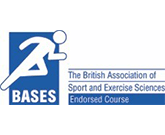
Your Learning Experience
Excellent facilities and learning resources
We adopt an active blended learning approach, meaning you will experience a combination of face-to-face and online learning during your time at LJMU. This enables you to experience a rich and diverse learning experience and engage fully with your studies. Our approach ensures that you can easily access support from your personal tutor, either by meeting them on-campus or via a video call to suit your needs.
Teaching is via a combination of lectures, interactive seminars, one-to-one tutorials, online activities, laboratory-based practical work and group work. Guided independent study using our libraries, laboratories and the web accounts for 70-80% of each module. Web-based content is also available through our virtual learning environment.
Work-related learning
Work experience can significantly enhance your professional development and career prospects. You will therefore spend part of your final year on an applied placement, giving you the chance to practise skills and knowledge gained in the first two years of the course and giving you a head start when you come to navigate the graduate job market. You also have the opportunity to take an optional Sandwich Year placement, which is taken in your third year, providing you with a year-long work-based learning experience.
Dedicated personal tutor, plus study skills support
From day one of the degree programme, you will be allocated a personal tutor and remain under their guidance throughout your time at LJMU. They will be available to discuss any academic or personal issues on a one-to-one basis as well as helping you to put together your educational and future career plans. You will also work with your personal tutor in small groups to develop study skills essential for the sport and exercise sciences programme.
The school is fully committed to promoting a learning environment that supports a culture of equality, diversity and inclusivity (EDI) and has a Disability Support Coordinator, an EDI Coordinator and a School EDI Working Group. Personal Tutors also play a vital role in promoting awareness of support services for students.
Assessment varies depending on the modules you choose, but will usually include a combination of exams and coursework.
All students perform differently depending on how they are assessed, which is why we use a combination of assessment methods. These include: written assignments (essays, lab reports, literature reviews), exams (MCQ, seen and unseen), practical work, portfolios, presentations (group and individual), and reflective practice/diaries. You will also be expected to complete a dissertation in your final year.
Your tutors will provide feedback on assessments within three weeks, allowing you to quickly identify your successes and the areas where you may need to put in more work. This is provided via our virtual learning environment, face-to-face and/or as written comments for coursework and one-to-one for exams. You are also welcome to arrange further meetings with staff to discuss your feedback.
Where you will study
You will study in Liverpool city centre at our City Campus. Our sport and exercise sciences facilities are world-leading and feature state-of-the-art laboratory facilities for our current and future sport scientists. The Avril Robarts library is within easy walking distance and here you'll find all the information you need to support your studies.
Course tutors
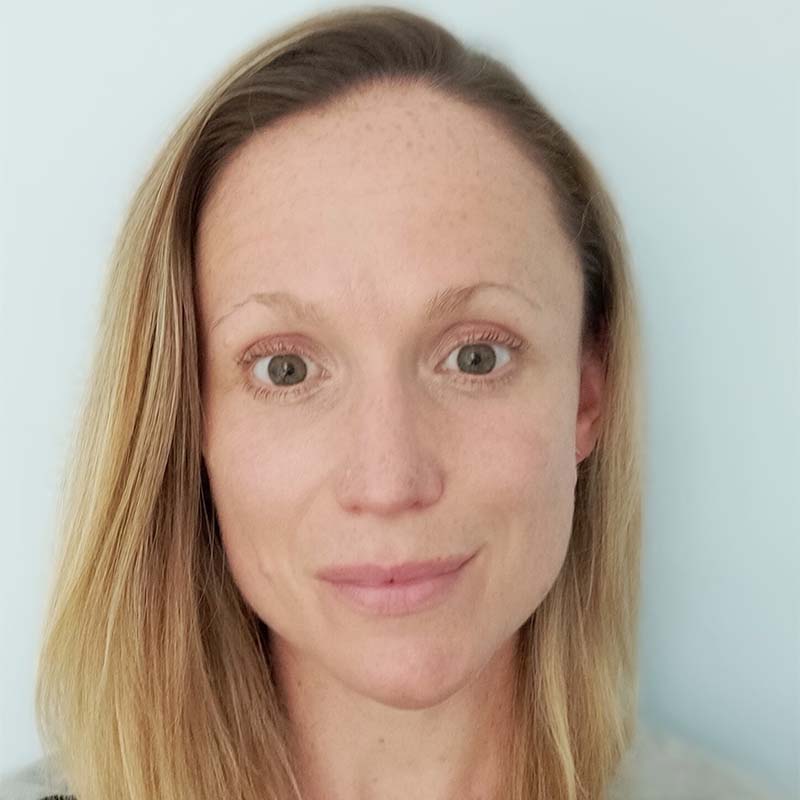
Dr Elizabeth Mahon
Programme Leader
The most enjoyable and rewarding aspect of my role is seeing students' progress through their course and helping them to reach their potential. It is great to see them leave us in their final year with the confidence to enter the workplace in their chosen discipline.
The most enjoyable and rewarding aspect of my role is seeing students' progress through their course and helping them to reach their potential. It is great to see them leave us in their final year with the confidence to enter the workplace in their chosen discipline.
Dr Mahon completed her PhD at LJMU in Nutrition for Ultra-Endurance Sport, alongside a Postgraduate Diploma in Sport Nutrition with the International Olympic Committee. She is a registered nutritionist with the Association for Nutrition, with specialisms in sport and public health. Elizabeth has worked as an academic and practitioner in both of these fields and has a passion for improving the health and fitness of the general population, as well as working with performance athletes. Her research interests are primarily in sports nutrition, more specifically looking at optimising the diet and nutritional strategies of ultra-endurance athletes.


I 100% believe that if I didn't come to LJMU I would have had to choose between Water Polo and my degree, but I can say I have a Commonwealth Gold Medal, captained a World University Games and achieved a 1st class degree and that is all because of LJMU!
Career paths
The diversity of careers that our graduates pursue is testament to the variety of skills they develop during their course. Some choose to pursue teaching careers, supplementing their degree with a Postgraduate Certificate in Education.
Others continue their studies at masters level, remaining at LJMU to study sport and clinical biomechanics, sport psychology, sport and exercise physiology, sport nutrition, strength and conditioning or study for other masters degrees e.g. physiotherapy. Some also progress to doctoral level research and take up lecturing positions in universities and colleges.
Whatever your career choice, the transferable skills you will gain on the course are sought after by a wide range of employers, many of whom tell us they value our graduates because they "think differently and have excellent people skills".
Find out more about career opportunities in sport and exercise sciences.
Student Futures - Careers, Employability and Enterprise Service
A wide range of opportunities and support is available to you, within and beyond your course, to ensure our students experience a transformation in their career trajectory. Every undergraduate curriculum includes Future Focus during Level 4, an e-learning resource and workshop designed to help you to develop your talents, passion and purpose.
Every student has access to Careers Zone 24/7, LJMU's suite of online Apps, resources and jobs board via the LJMU Student Futures website.
Tuition fees and funding
- Full-time per year:
- £9,535
- Placement year:
- £1,905
The University reserves the right to increase tuition fees in accordance with any changes to the maximum allowable fees set by the UK Parliament. In the event of such a change, any fee increase will be subject to a maximum cap of 10% of the total course cost as originally stated at the time of your offer.
The fees quoted above cover registration, tuition, supervision, assessment and examinations as well as:
- library membership with access to printed, multimedia and digital resources
- access to programme-appropriate software
- library and student IT support
- free on-campus wifi via eduroam
Additional costs
Although not all of the following are compulsory/relevant, you should keep in mind the costs of:
- accommodation and living expenditure
- books (should you wish to have your own copies)
- printing, photocopying and stationery
- PC/laptop (should you prefer to purchase your own for independent study and online learning activities)
- mobile phone/tablet (to access online services)
- field trips (travel and activity costs)
- placements (travel expenses and living costs)
- student visas (international students only)
- study abroad opportunities (travel costs, accommodation, visas and immunisations)
- academic conferences (travel costs)
- professional-body membership
- graduation (gown hire etc)
Funding
There are many ways to fund study for home and international students. From loans to International Scholarships and subject-specific funding, you'll find all of the information you need on our specialist funding pages.
A DBS check is not required for your application, however a DBS may be required for modules where there is a work based learning placement option. Work based learning placements that do not require a DBS check are available.
Entry requirements
Please choose your qualifications below to view requirements
Grades/points required from qualifications: BBB-ABB (120-128)
Work out how many UCAS points your qualifications are worth by visiting the UCAS Tariff Calculator.
Qualification requirements
How to apply
Securing your place at LJMU
UCAS is the official application route for our full-time undergraduate courses. Further information on the UCAS application process can be found here https://www.ljmu.ac.uk/study/undergraduate-students/how-to-apply.
Your university life
From accommodation and academic support to clubs and societies. Find out what LJMU has to offer.
Related Links
Talk to our students
Connect with a current LJMU student for advice and guidance on university life, courses and more.
See what our students are saying
At LJMU we want you to know you're making the right choice by studying with us. You can see what our students are saying about their experience with us through their reviews on the following websites:
Related Links
News and views
Browse through the latest news and stories from the university
The university reserves the right to withdraw or make alterations to a course and facilities if necessary; this may be because such changes are deemed to be beneficial to students, are minor in nature and unlikely to impact negatively upon students or become necessary due to circumstances beyond the control of the university. Where this does happen, the university operates a policy of consultation, advice and support to all enrolled students affected by the proposed change to their course or module.
Further information on the terms and conditions of any offer made, our admissions policy and the complaints and appeals process.


































